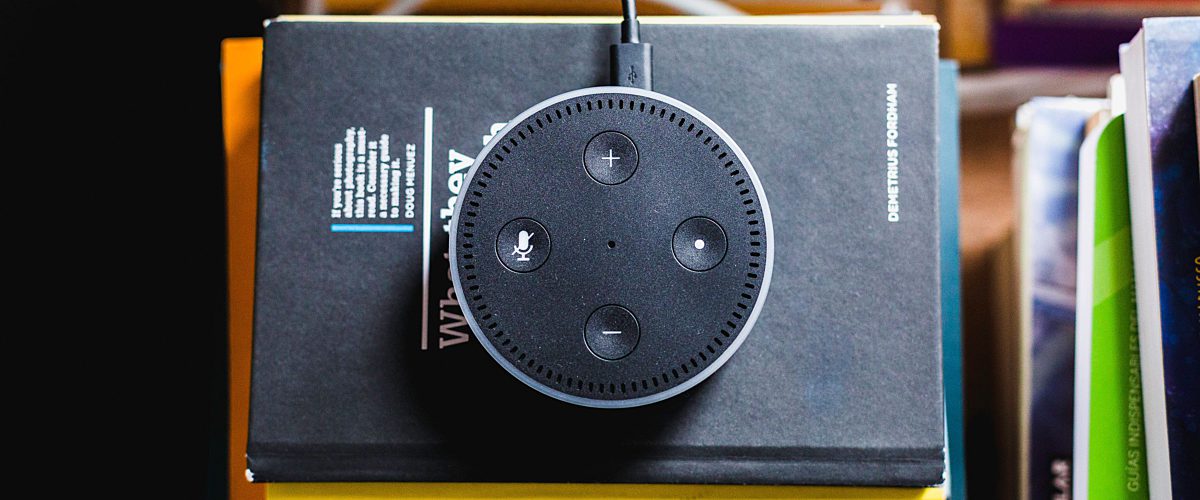
Voice control is here to stay
'Hi Google, are there any traffic jams this morning?' Smart voice assistants have long been the newest hightech gadgets in the smart home market. Today, they are no longer a nice-to-have but have become mature devices that are evolving.
Beyond the trend
2019 is expected to become the year that smart voice assistants will conquer a firm position on the European smart home market. In America already one out of five individuals has access to a smart speaker.
The trend has started with Siri, a smart search function on Apple's Iphone, but the technology was quickly introduced to the smart device market also. Today, both Amazon and Google have an affordable smart speaker on the market. Recently, Facebook launched their Portal, a voice-enabled video device, we can state that 'the big four' are doing their utmost best to conquer the market. Smart speakers no longer seem to be a trendy gadget for geeks only.
We compared smart speakers from Siri, Amazon and Google. Which voice control came out on top?

The Facebook Portal is adding a lot more options to a smart device than simply controlling your smart home. A smart camera, video calling, streaming services such as Spotify and Netflix and more.
Facebook Portal
Off course, adding video to a voice control device is nothing new. Both Google (Google Home Hub) and Amazon (Echo Show) have a smart display variant on the market. It's not the device that makes the Portal so intriguing, it's the fact that a company such as Facebook decides to break into the world of smart homes and tries to add extra value to a smart assistent. If big companies such Facebook and Google, who recently launched a voice control version of their Nest thermostat, want to invest in smart speakers this means the market will grow as a whole.
Challenges for Europe
In Europe the roll-out of voice control devices such as Alexa is a slow and step by step process. The abundance of languages, accents and dialects makes it harder to develop a device that understands it all. As a result, not every device is available in each country and not every European homeowner has one in his living room yet, let alone that they are ready for a smart display.
There are however slow developments in this smart technology area. Dutch speakers can for instance opt for a smart assistant with a male voice.
Another challenge is the increasing importance of data privacy (thanks GDPR!). Given the fact that these devices can hear anything that is being said in your private home, we should be aware of the potential risks. At this moment it isn't clear what happens to the data that is collected through voice control devices, so that are questions that still need to be answered.
Artificial intelligence
At the moment we can only talk about a smart voice assistent. They execute the command we give them. But how nice would it be if we could have a whole conversation with our device?
That's where artificial intelligence could come in. To create a device that truely understands your meaning and can think ahead. Despite the fact that Google, Amazon and Facebook have taken some first steps in implementing artificial intelligence in their device, the end of the road is not yet anywhere near.
What we do know is that smart assistants will play a crucial part in the future of smart homes. Thus, to the question 'Is voice control here to stay?' Alexa, Google and Portal will all answer the same. 'Yes, we're not going anywhere'.


